Leadership Project Part 4: CCSS K-8 Grade Level Reading Assessments
Introduction
The action site team of St. John Eudes is working collaboratively to develop K-8 reading assessments aligned with Common Core Standards. Teachers and the administration at St. John Eudes school will participate in professional development, work in grade level groups to create authentic grade level reading assessment. Each grade level, K-8, is responsible for creating an informational text reading assessments as well as a literary text reading assessment both aligned with CCSS. In addition teachers are to create a teacher copy/answer key as well as a scoring rubric for each assessments. Assessments will be completed by June 2014 so teacher may begin classroom implementation in the 2014-2015 school year.

By participating in various professional development opportunities teachers will already have knowledge on what Common Core is, the six shifts in ELA, the organization and structure of the CCS and have worked to unpack the standards in order to effectively implement Common Core in their classrooms. Working together teachers have “unpacked” the K-8 ELA, Reading CCS and identified concepts and skills for each grade level to be addressed in grade level reading assessments. In addition, teachers and administration have learned about assessment, types of assessments (pre-assessment, formative assessment, summative assessment, traditional assessment and authentic assessment) and will work in both faculty and grade level meetings to create grade level reading assessment.
Reading benchmarks, created in grade level groups, will not be “traditional assessments” but will incorporate a variety of tasks in order to authentically assess a student’s reading capacity as well as whether or not teacher instruction is aligned with CCSS. Teachers will have the previously unpacked standards to refer to in order to help them identify what skills and concepts assessments should address. By working as a team to create assessments teachers will be able to maintain consistency across grade levels and ensure that the hierarchical structure of Common Core is being maintained.
Collaborative work will result in an authentic grade level assessment in literature as well as informational text for each grade K-8 and authentic assessments in foundational skills, grades K-1. The teacher-created authentic assessments maintain a collective view of assessment amongst teachers.
Role
Previous to working on grade level reading assessments various professional development sessions took place concerning CCSS ELA. Eventually grade level teams were arranged and met together on Mondays during grade level time as well on Friday during faculty meeting time. Before these sessions began I reviewed assessments with the faculty (see professional development page). In addition, I provided the faculty with a sample grade level reading assessment aligned with Common Core State Standards. This allowed all members of the faculty to be aware of expectations and provided them with a guide to follow and use as a template during the process of creating grade level reading assessments.
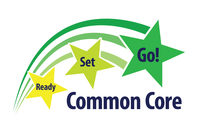 During collaborative sessions I worked with each grade level group to check for understanding, monitor progress and ask and answer any questions. Because I was dedicated to the project as well at the middle school team it was often difficult to find time to meet the needs of the faculty as well as my team members. To do this I began to delegate responsibilities to my middle school team members to ensure their active participation but also allow myself time to be in the primary and intermediate grade level meetings. In addition, the assistant principal, Mrs. Gunter, spent time in both primary and intermediate grade level meetings to aid and support when I was unavailable.
During collaborative sessions I worked with each grade level group to check for understanding, monitor progress and ask and answer any questions. Because I was dedicated to the project as well at the middle school team it was often difficult to find time to meet the needs of the faculty as well as my team members. To do this I began to delegate responsibilities to my middle school team members to ensure their active participation but also allow myself time to be in the primary and intermediate grade level meetings. In addition, the assistant principal, Mrs. Gunter, spent time in both primary and intermediate grade level meetings to aid and support when I was unavailable.
Often times on Fridays the faculty met together to check in and give a status update on progress and ask/answer questions. This helped streamline the process and ensure consistency among assessments. Teachers were also given copies of each other's assessments and asked to provide feedback in the form on (+) positives, (Δ) deltas/changes and (?) questions. This provided all faculty members with the opportunity to observe and reflect on one another's assessments as well as their own. In addition it provided teachers professional feedback concerning their work.
Assessments, answer keys and rubrics are to be completed by the end of the 2013-2014 school year, June 11, 2014, for implementation in the fall of the 2014-2015 school year. All assessments, answer keys and rubrics will be uploaded on googledocs for future reference and modifications.
Final Reflection
The approved Leadership Project centered around the implementation of the Common Core Standards specifically in English-Language Arts, Reading in grades kindergarten through eight at St. John Eudes School in Chatsworth, CA. The topic is related to educational outcomes providing teachers with the information, understanding and knowledge-base to effectively implement ELA CCS in their classrooms. Teachers will gain knowledge and participate in professional development opportunities concerning Common Core State Standards.
Throughout professional development opportunities and sessions teachers were engaged, actively participated, asked questions and wanted more information not only on Common Core, but also regarding instructional strategies that could be implemented in the classroom. This active engagement was welcome and I encouraged teachers to speak freely and participate without judgment or ridicule. The faculty and staff, over the course of the project, welcomed the change in topic and presenter. Overall the professional development went well because it consisted of informational sessions that applied to the classroom and instructional practices and could be brought back into instruction.
The K-8 staff worked collaboratively to unpack the standards of their grade level. While the Prezi informed teachers of the structure of the ELA CCS and examples were given as to how to unpack the standards many teachers struggled. Unpacking the standards is a difficult process and I did not consider ahead of time that many teachers on staff do not have "teacher education" training let alone literacy training. So while unpacking the standards may be easier for some than others many of our teachers on-staff do not have the basic literacy, curriculum and instruction skills needed to unpack the standards. As a result, I provided teachers will various reading strategies and went to grade level meetings to ask and answer questions about the process. I checked in with grade-level leaders concerning progress and the process and have completed what groups had completed in the process of unpacking. I then took what each group had completed and edited templates to ensure consistency in language and format.
teachers of the structure of the ELA CCS and examples were given as to how to unpack the standards many teachers struggled. Unpacking the standards is a difficult process and I did not consider ahead of time that many teachers on staff do not have "teacher education" training let alone literacy training. So while unpacking the standards may be easier for some than others many of our teachers on-staff do not have the basic literacy, curriculum and instruction skills needed to unpack the standards. As a result, I provided teachers will various reading strategies and went to grade level meetings to ask and answer questions about the process. I checked in with grade-level leaders concerning progress and the process and have completed what groups had completed in the process of unpacking. I then took what each group had completed and edited templates to ensure consistency in language and format.
Faculty also participated in a professional development session centering around assessment, how to create authentic assessment and what reading assessments are. Prior to this PD I completed research on creating assessments and backwards planning but struggled to find recent research because the Common Core is such a recent and developing topic. It was important for me to be as prepared as possible because again, not all teachers have formal teacher training or literacy training so I wanted to provide them with as much knowledge and resources as possible.
Working with parents concerning the implementation and adoption of Common Core is an integralcomponent of this project. At first administration suggested I host a Principal’s Coffee to introduce the topic and help parents understand CCSS and offer them strategies and resources to use at home. 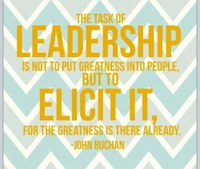 Over time administration decided this would not be possible and I was immediately discouraged at them keeping me at-bay and out of the process. Over time, with some convincing, administration opened to the idea of holding a Parent Workshop in which I could offer support to parents and provide them with resources and strategies to use at home as supplementary support to academic work. My planning and preparation for the evening was done independently and while parents will probably always make me nervous, the Parent Workshop was my favorite component of the leadership project. It granted me the opportunity to work one-on-one with parents to truly impact student achievement, support Common Core and work towards creating and maintaining a collective understanding of CCSS ELA, Reading. This event truly strengthened parent understanding of the Common Core as well as reinforced the school's philosophy holding parents as the primary teacher.
Over time administration decided this would not be possible and I was immediately discouraged at them keeping me at-bay and out of the process. Over time, with some convincing, administration opened to the idea of holding a Parent Workshop in which I could offer support to parents and provide them with resources and strategies to use at home as supplementary support to academic work. My planning and preparation for the evening was done independently and while parents will probably always make me nervous, the Parent Workshop was my favorite component of the leadership project. It granted me the opportunity to work one-on-one with parents to truly impact student achievement, support Common Core and work towards creating and maintaining a collective understanding of CCSS ELA, Reading. This event truly strengthened parent understanding of the Common Core as well as reinforced the school's philosophy holding parents as the primary teacher.
The grade level teams, primary, intermediate and middle school, all worked collaboratively to complete grade level reading assessments aligned with the Common Core State Standards, ELA, Reading. This took the majority of the time, even though it was done collaboratively. Teachers needed time, after unpacking the standards, to create and develop reading tasks aligned with the standards. In addition, they worked to create teacher answer keys and rubrics for assessments. The creation of grade level reading assessments will be completed in June 2014 for implementation in Fall 2014 and across the 2014-2015 school year. While I was as flexible as possible with deadlines and offered support in any way I could I still had to lead the group and maintain guidelines and timelines according to the project model.
Considerations for Future Implementation
Upon implementation and analysis of assessment results teachers and administration will be able to gauge whether or not CCSS ELA are being effectively implemented in the classrooms and in what specific areas. Based on results future professional development may be needed or may be concentrated on a specific area if results show an area of weakness across all scores. The teacher-created authentic assessments will be St. John Eudes’ school wide assessment system to monitor the efficacy of Common Core and further guide its implementation on-campus.
Throughout the process of implementing Common Core at St. John Eudes teachers will submit lesson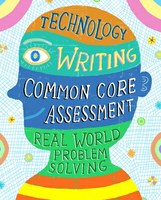 plans, unit plans and students work aligned with Common Core Standards in addition to being observed by administration. With artifacts being collected in various forms it is important as a staff to create an artifact rubric to measure and score items and their alignment with CCS to ensure the efficacy of the program . Therefore, teachers may consider working collaboratively in the future to create an artifact rubric that scores instruction, student work and teacher lesson plans/unit plans to assess whether or not the artifacts effectively align with CCSS.
plans, unit plans and students work aligned with Common Core Standards in addition to being observed by administration. With artifacts being collected in various forms it is important as a staff to create an artifact rubric to measure and score items and their alignment with CCS to ensure the efficacy of the program . Therefore, teachers may consider working collaboratively in the future to create an artifact rubric that scores instruction, student work and teacher lesson plans/unit plans to assess whether or not the artifacts effectively align with CCSS.
The teachers work extremely hard to create engaging and creative lessons aligned with CCSS and collect numerous artifacts within a year as evidence of their efforts. An artifact rubric would be a useful tool in collecting and disaggregating data to determine the strengths and weakness of the school’s literacy instruction. The artifact tool could be used to measure grade level CCSS implementation as well as school wide implementation. In addition, data collected could guide further professional development trainings concerning literacy curriculum and instruction. The artifact rubric created would be a useful tool in assessing the efficacy of Common Core at St. John Eudes.
The first learning cycle of the leadership project involves the implementation of Common Core Standards specifically in ELA, Reading across the 2013-2014 school year. A second cycle should take place during the 2014-2015 school year at St. John Eudes. A second cycle may be necessary for various reasons. For example, staff turnover cannot be predicted thus if there are new members on-staff more education, depending on teacher education background, may be necessary in ELA, Reading and with Common Core in general. In addition, only ELA, Reading standards have been addressed thus far. The next cycles will need to incorporate writing, listening and speaking as they pertain to the ELA standards and eventually the Common Core math standards.
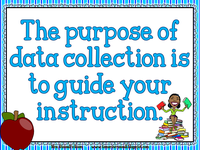
Addressing all of the standards in a similar fashion to addressing the reading standards will take time and may occur over multiple years. As the shift to Common Core takes place and St. John Eudes works to incorporate the standards into instruction and curriculum various components of implementation may change based on shifts in policy. Therefore, it is important to continuously address the program, its implementation and work towards change for improvement in alignment with the school’s mission using the measures previously mentioned: surveys, assessments and the artifact rubric results.
As measures begin to be implemented at St. John Eudes it is important that all teachers have input and access to the data. For example upon the implementation of teacher-created reading assessments all teachers should work collaboratively to analyze and disaggregate the data in order to identify class andschool wide strengths and weakness concerning literacy instruction on-campus. Future faculty meeting time should be banked by administration to provide teachers the time to effectively analyze the data and make informed decisions based on assessment results. Upon the creation and implementation of the artifact rubric teachers will need practice both using the rubric evaluating themselves and using the rubric to evaluate one another. Again, training will be necessary in some form, perhaps faculty meeting, to ensure a collective understanding of the purpose and use of the artifact rubric. Banked time should also be set aside during faculty meetings in the future for teachers along with administration to review rubrics, score and measure them to again make informed decisions based on results. Results may guide teacher input and may lead to more professional development on specific topics or certain items depending on results. Various measures must be used to guide the effective implementation of Common Core and to ensure the efficacy of the program. For the program to be effective and equitable all teachers must have access to the program, its measure and data so results are authentic and accurate.
The mission of St. John Eudes should continuously guide the implementation of Common Core. In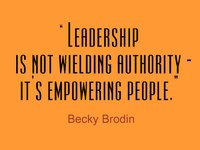 referring to the mission of the school and the schoolwide learning expectations (SLEs) the action site team will have a “moral compass” to ensure that implementation remains ethical. Allowing the moral compass to guide the process will redirect every question, concern and decision made to whether or not it aligns with the mission of the school. Constantly referring to the school’s mission and schoolwide learning expectations is integral because the mission and SLEs are the root beliefs, they are what St. John Eudes stands for and represents as a school. Therefore, by constantly referring to the mission and to whether or not a facet of implementation aligns with the mission and SLEs the integrity of St. John Eudes and what the school stands for can be maintained
referring to the mission of the school and the schoolwide learning expectations (SLEs) the action site team will have a “moral compass” to ensure that implementation remains ethical. Allowing the moral compass to guide the process will redirect every question, concern and decision made to whether or not it aligns with the mission of the school. Constantly referring to the school’s mission and schoolwide learning expectations is integral because the mission and SLEs are the root beliefs, they are what St. John Eudes stands for and represents as a school. Therefore, by constantly referring to the mission and to whether or not a facet of implementation aligns with the mission and SLEs the integrity of St. John Eudes and what the school stands for can be maintained
Supporting Documents
Kindergarten Assessments: Informational Text & Literary Text
1st Grade Assessments: Informational Text & Literary Text
2nd Grade Assessments: Informational Text & Literary Text
3rd Grade Assessments: Informational Text & Literary Text
4th Grade Assessments: Informational Text & Literary Text
5th Grade Assessments: Informational Text & Literary Text
6th Grade Assessments: Informational Text & Literary Text
7th Grade Assessments: Informational Text & Literary Text
8th Grade Assessments: Informational Text & Literary Text
Foundational Skills Assessments:
- Concepts About Print
- High Frequency Word Assessment
- Letter Identification Assessment
- Retelling Assessment
CPSEL CONNECTION
Standard 1: Facilitating the development, articulation, implementation, and stewardship of a vision of learning that is shared and supported by the school community.
- 1.1 Develop a shared vision
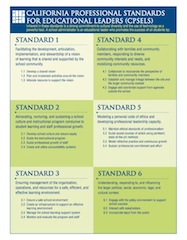
- 1.2 Plan and implement activities around the vision
- 1.3 Allocate resource to support the vision
Standard 2: Advocating, nurturing, and sustaining a school culture and instructional program conducive to student learning and staff professional growth.
- 2.1 Develop school culture and ensure equity
- 2.2 Guide the instructional program
- 2.3 Guide professional growth of staff
- 2.4 Create and utilize accountability systems
Standard 3: Ensuring management of the organization, operations, and resources for a safe, efficient, and effective learning environment.
- 3.1 Ensure a safe school environment
- 3.2 Create an infrastructure to support an effective learning environment
- 3.3 Manage the school learning-support system
- 3.4 Monitor and evaluate the program and staff
- 4.1 Collaborate to incorporate the perspective of families and community members
- 4.3 Engage and coordinate support from agencies outside the school
Standard 5: Modeling a personal code of ethics and developing professional leadership capacity.
- 5.1 Maintain ethical standards of professionalism
- 5.2 Guide sound courses of action using pertinent, state-of-the-art methods
- 5.3 Model reflective practice and continuous growth
- 5.4 Sustain professional commitment and effort
Standard 6: Understanding, responding to, and influencing the larger political, social, economic, legal, and cultural context.
- 6.1 Engage with the policy environment to support school success
- 6.2 Interact with stakeholders
- 6.3 Incorporate input from the public


